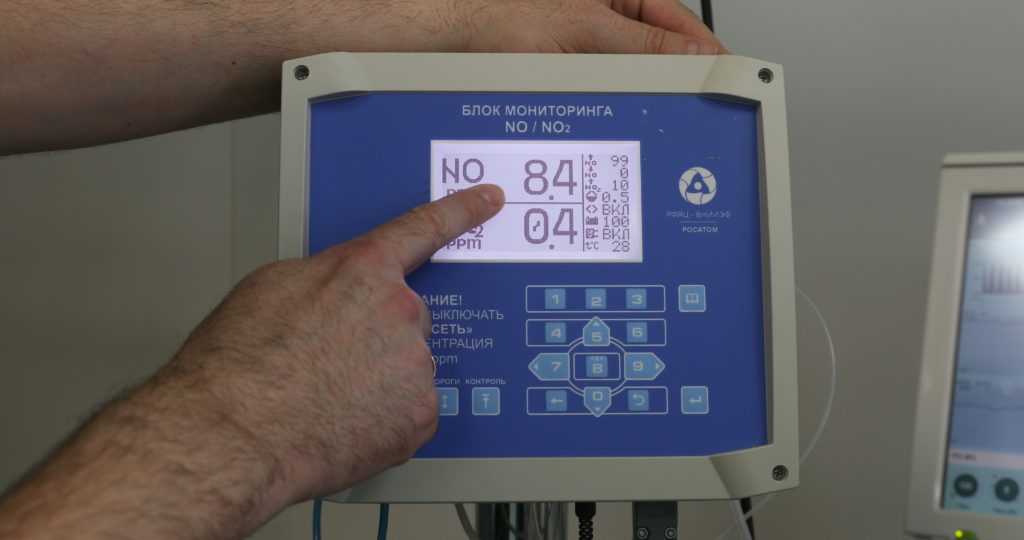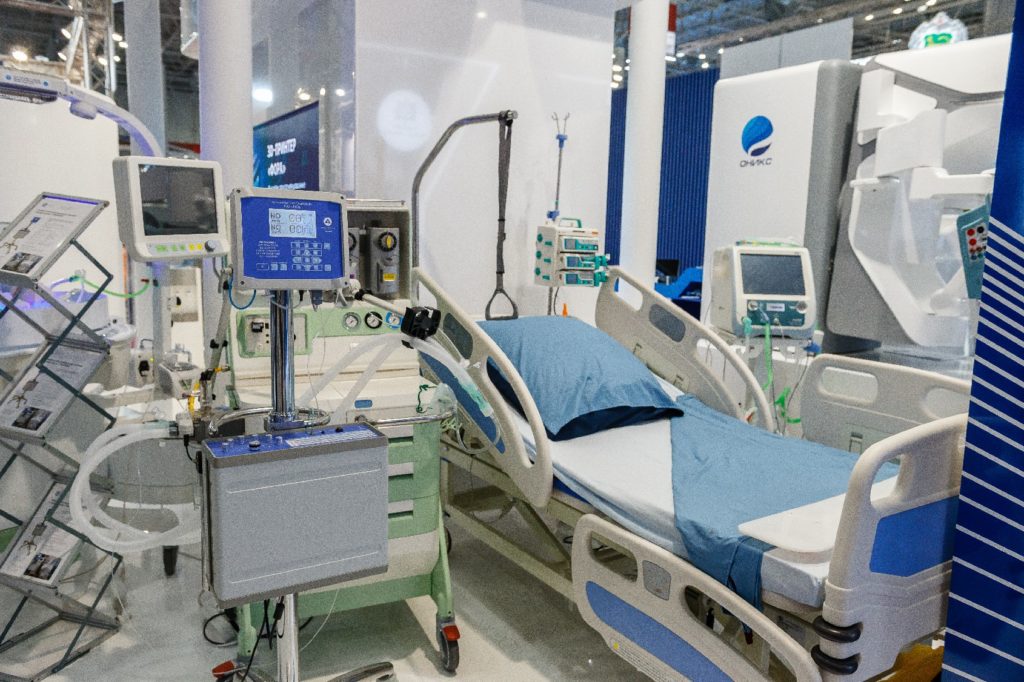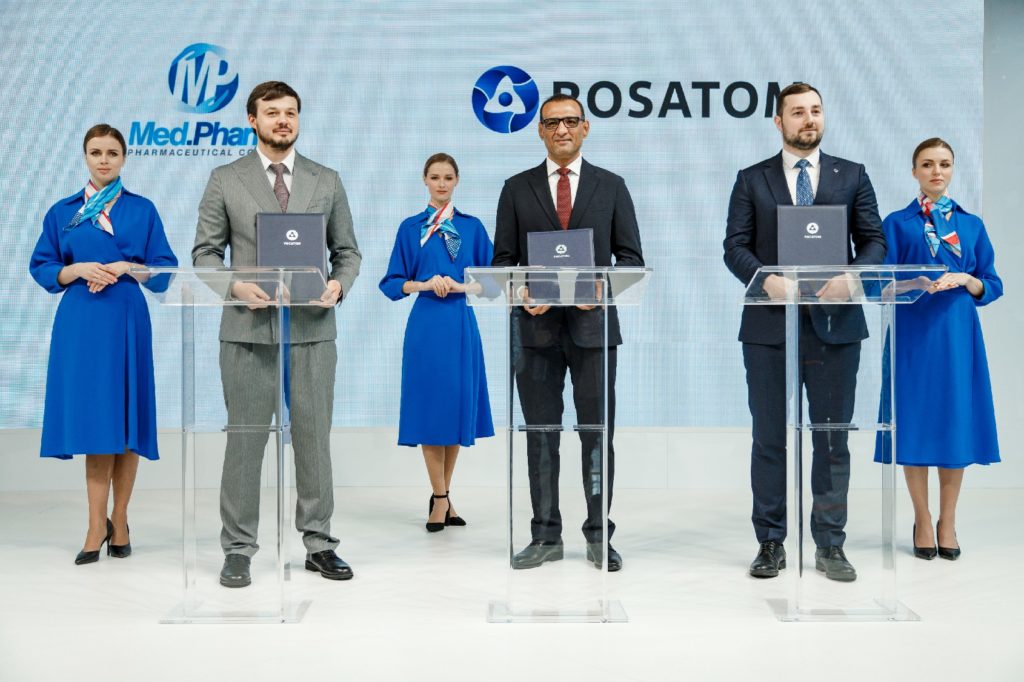
A New Chapter of Cooperation
back to contentsThe El-Dabaa project is a key, but not the only area of cooperation between Rosatom and Egypt. Murad Aslanov, Director of Rosatom’s representative office in Egypt, highlighted the solutions Rosatom could offer Egypt in terms of new business opportunities.
Last year, Russia and Egypt commemorated an important milestone — 80 years of bilateral ties. How does Rosatom envisage the prospects for cooperation with Egypt in the future?
The commemoration of 80 years of bilateral ties between Russia and Egypt marks a significant historical relationship between the two nations, characterized by mutual respect, cooperation, and shared interests across various sectors. As a pivotal player in the nuclear industry, Rosatom views the future prospects for cooperation with Egypt through a multifaceted lens, encompassing not only the expansion of nuclear energy projects but also the broader scope of scientific, technological, and cultural exchange.
Looking ahead, Rosatom seeks a comprehensive partnership that interweaves the strategic interests of both nations, fostering economic growth and technological advancement. While the focus remains on the successful implementation of the El Dabaa project, Rosatom’s vision for future cooperation with Egypt is likely to be expansive, touching upon various facets of society and industry, and contributing to the sustainable development of both countries.
What solutions could Rosatom offer to Egypt in terms of new business opportunities? In particular, which digital solutions might be of interest to the Egyptian side?
Rosatom is a world leader not only in nuclear technology but also in a variety of other high-tech sectors. In terms of new business opportunities for Egypt, Rosatom is right now studying the Egyptian market and how our solutions can be fitted to cater for the needs of our local partners and clients. We have identified several areas that we are currently focused on, including, of course, the digital solutions in all its variety, i. e. from industry software to products for urban development. Definitely we have a lot more to offer and we will accordingly react to the trends and needs of Egypt.

We are confident that our collaboration with Egypt will yield remarkable results and drive the country’s sustainable development agenda, support Egypt’s ambitious goals and contribute to its overall progress.
Nuclear medicine represents one of the significant areas of cooperation between Russia and Egypt. In particular, the innovative Tianox medical device is being supplied to the country. Could you provide more information about this product, please?
On March 26, 2024, at the XIII International Forum ATOMEXPO 2024 in Sochi, Rusatom RDS JSC (a company of Rosatom State Corporation) and the Egyptian company Med Pharma Group signed a roadmap for cooperation in promoting the Tianox medical device to the healthcare and pharmacology market of the Arab Republic of Egypt. Tianox is a Russian nitric oxide therapy facility for adults and children (including newborns), an innovative development of specialists in the domestic nuclear industry. The device is used in pulmonology, cardiac surgery, transplantology, neonatology, rehabilitation and other areas. Tianox synthesizes nitric oxide itself, delivers it to the patient’s lungs and controls its concentration.
The first shipment of Tianox was delivered to Egypt to be sent to their relevant medical institutions and we are confident that our cooperation with our Egyptian partners will be successful and mutually beneficial for all parties. In this context, and as part of the implementation of the roadmap, our immediate plans include the registration of the device in the territory of the Republic as a medical device, as well as the holding of seminars aimed at the exchange of experience between medical specialists of the Russian Federation and the Arab Republic of Egypt.
The new stage of cooperation will allow Egyptian medical institutions to update their equipment fleet, improve the quality of services and improve the level of medical care for the population.
Are there any other Rosatom offerings in the nuclear medicine field that might pique Egypt’s interest?
In healthcare, Rosatom brings to the table its extensive knowledge in the production of radioisotopes and medical equipment manufacturing, as well as its proficiency in executing large-scale medical infrastructure projects. This opens up avenues for joint ventures in the advancement of medical technologies and nuclear medicine, further developing the Egyptian healthcare system. The synergy could lead to the establishment of advanced medical facilities, the local production of critical radioisotopes for cancer treatment and diagnostics, and the introduction of cutting-edge medical devices, all of which would contribute significantly to the health and well-being of the Egyptian public.

Parallel to healthcare, the cooperative effort touches upon the agricultural sector, where Rosatom’s expertise in radiation technology offers innovative solutions for food preservation and pest control, promising to enhance Egypt’s agricultural productivity and food security.
Rosatom stands as a major player in the Russian wind power industry. What do you think about the potential for wind power development in Egypt? Are there any existing agreements in this regard?
Egypt has significant potential for wind power development due to its geographical location and natural resources. The Egyptian government has recognized the importance of renewable energy, including wind power, in diversifying its energy mix and reducing reliance on fossil fuels, decreasing greenhouse gas emissions, and mitigating the impacts of climate change. The development of wind energy in Egypt not only aligns with the country’s sustainability goals but also supports the broader global agenda outlined in the Sustainable Development Goals. This approach is in alignment with Egypt Vision 2030 which stipulates the country’s long-term strategy for the transition to renewable sources of energy.
In this frame, we believe that Rosatom can significantly contribute to the further diversification of the Egyptian energy mix by offering our capabilities in the wind and hydrogen energy and we are currently studying the market to prepare our comprehensive offer in this regard.
Another significant area of focus for Rosatom is the advancement of energy storage solutions. What are the potential areas for collaboration between Russia and Egypt in this regard?
As we mentioned before, Egypt has adopted the strategy for the extensive use of renewable energy sources and gradual decrease of carbon emission which can also be achieved by the electrification of vehicles. Energy storage solutions, hence, play a crucial role in maximizing the potential of renewable energy and green mobility sectors. These storage solutions enable the capture and storage of excess energy generated during periods of high wind activity, allowing for the delivery of consistent and reliable power. This helps to address the irregularity and variability of renewable energy sources, making them more dependable and suitable for meeting energy demand.
In this context, Rosatom has a wide range of solutions for storage systems, traction batteries etc that can be customized to meet the specific needs of end-clients in Egypt.

Last year, exactly on December 27th, 2023, Rosatom inaugurated its unified flagship office in Cairo. Could you please elaborate on the objectives of this office?
The opening represents an important stage in uniting the office infrastructure of companies that are part of Rosatom, with the aim of promoting the products of Rosatom organizations in the Egyptian market. It also marks a new chapter of cooperation, particularly in the field of nuclear and non-nuclear energy, strengthening our partnership and fostering knowledge exchange in various sectors.




